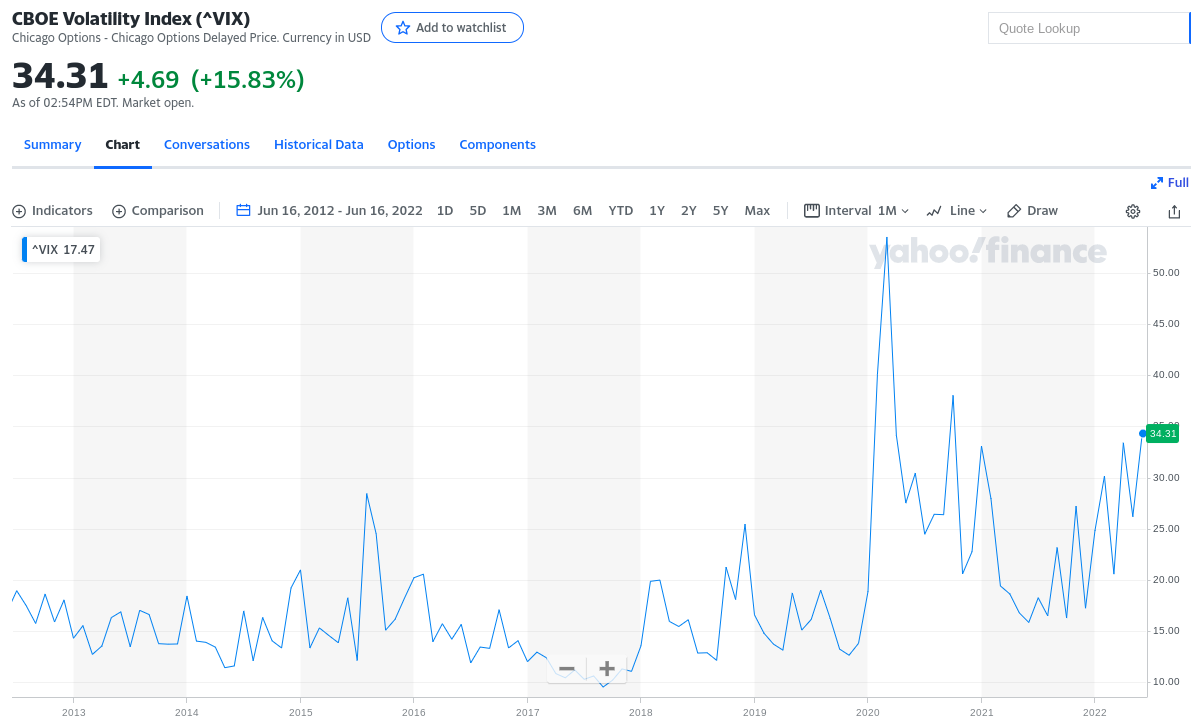|
This post seeks to share some insight about the current state of the markets and economy, as well as some ideas on how to make the best of this moment. Volatility is here!As of this writing, on June 16, 2022, the S&P 500 is down about 24% from it's highest level, which was set on January 3 of this year. The 10 year US treasury yield is around 3.31%, which is more than double the level is traded at the start of the year. In the simplest terms, these two points taken together mean that almost any portfolio built of funds that track the stock and bond markets are likely to be "down" in value over the last ~ 6 months. Some broader context may be useful here. Considering the current level of the S&P and the level in mid June 2017, for roughly 5 years of data, the compound annual growth rate of the index is still around 8.4%, and that is excluding dividends. So an investor holding a broad basket of stocks over the last 5 years, annual returns have probably been decent, even with the current downturn. However, it is never fun to see portfolio values drop, and the current level of market volatility is something we have not seen in a while; the image below shows the level of the "VIX", one measure of market volatility, over the last 5 years: The tallest peak in that range was the March 2020 market crash at the outset of the COVID-19 disruptions, and the market is creeping back towards that level of volatility. Volatility in the markets is not necessarily bad, but it can be uncomfortable to watch. When things are going well, it is normal investor psychology to think that the markets are an intelligent machine, constantly calculating value, but my perspective has come to view the markets more like a drunk college freshman trying to find their way back to the dorm...they will probably get to the right place eventually, but will likely stumble and sway along the way. This is particularly the case in the short run, which is why my firm's approach to financial planning and investment attempts to match portfolio advice to the time horizon for a given goal. Young folks who are well employed and have decades to save for retirement are generally able to weather some bouts of market volatility along the way; people close to or in retirement may have circumstances that dictate they are less comfortable having as much exposure to that volatility. What's coming next?I continue to hold the line that the future is hard to see, and the best we can do is prepare based on the things we do know now.
Market history does not necessarily imply or inform the market's future, but there are some things we can learn from the past:
Opportunities here?There are a handful of things that may make sense to consider in this market moment, and I welcome the opportunity to discuss these with my current and prospective clients one on one:
|
AuthorDavid R Wattenbarger, president of DRW Financial Archives
June 2022
Categories |


 RSS Feed
RSS Feed
